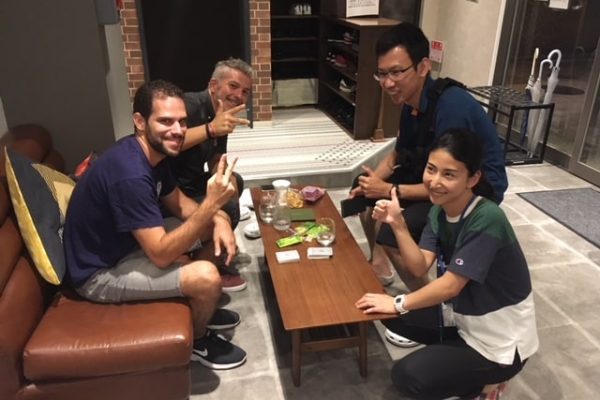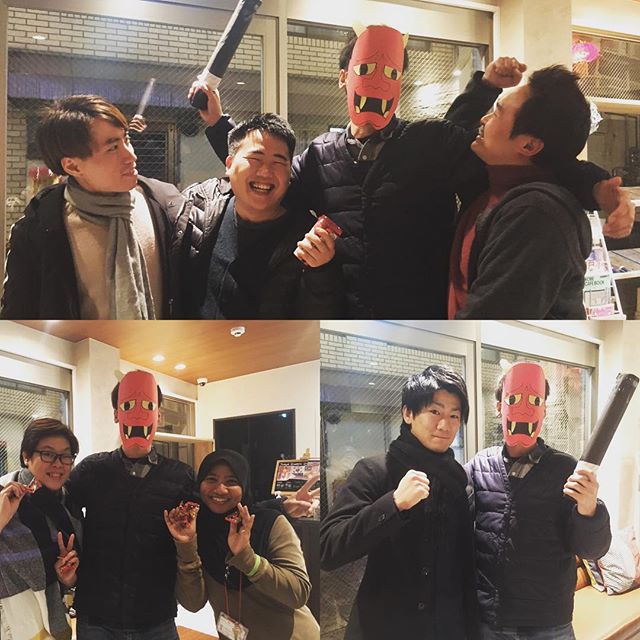
Useful phrases ①

こんにちは!英語を覚えるのに毎日奮闘しているRYOTAです。
Hi. I make an effort to speak English everyday.
今回は海外の方とお話しする時に、自然かつよく使われるワンフレーズをご紹介していきます。
Today I will introduce you some useful phrases to talk with foreigners.
- 出身はどこなの?
- どうして日本に来たの?
- 趣味はなに?
- 「Thank you!」と言われた時の返し方
- Place of birth
- The reason why they came to Japan
- Hobbies
- How to reply when others say “Thank you” to you

・出身はどこなの?
・Place of birth
日本に訪れている海外の方達と話す際、名前や年などと同様、必ず出てくるフレーズだと思います。
It is the most useful phrase when you talk with foreigners.
Where are you from?
Where are you from?
直訳すると「あなたはどこから?」になります。your country?を付けても間違いでは無いですが、こちらの方が自然で短く質問出来るフレーズですね。
This phrase is more natural than “Your country?”.
・どうして日本に来たの?
・The reason why they came to Japan
海外の人を取り上げた「YOUは何しに日本へ?」という番組の中で良く使われる「Why did you come to Japan?」というフレーズがあります。
On the Japanese TV program, “Why did you come to Japan?” is often used.
ごく一般的なフレーズだと思い私もよく使っていましたが、海外、特にネイティブの方からすると少し冷たい印象になるというのを知って驚きました。
I thought that this phrase was used very often in other countries. However, it is not true and it gives cold impression to native speakers.
基本的に「Why」という単語は少し否定的な意味合いが含まれるそうで、大げさに言うと「なんでわざわざ日本に来たの?」という印象を与えてしまうそう。なので少し言い方を変えて、
“Why” has a negative meaning like asking “Why bother coming to Japan?”
「What brings you to Japan?」
“What brings you to Japan?”
直訳すると「なにがあなたを日本に持ってきたの?」という意味になります。
This phrase is more polite.
これが先ほどの文章よりも易しく、ナチュラルな表現だそうで、次回から是非試してみて下さい。
You should try to use it.
・趣味はなに?
・Hobbies
趣味というとイメージされるのが、「Hobby」だと思います。その為、
When you ask someone what their hobbies are, you may come up with the sentence …
What’s your hobby?
What’s your hobby?
と質問するのが一般的だと思われますが、こちらもネイティブの方からすると「唯一の趣味」や「コレクション」といった意味合いになるそうで、軽い感じで「趣味はなんなの?」と聞くフレーズではないみたいです。なのでこの場合は、
However, it is not natural for native speakers. For them, it means “the only hobby” or “collection”.
①What do you do in your free time?
①What do you do in your free time?
もしくは
OR
②What do you do for fun?
②What do you do for fun?
①の直訳は「自由な時間には何してるの?」
①When you have free time, what do you do?
②の直訳は「何をしてる時が楽しい?」
②What makes you fun?
といった意味合いになります。軽い感じで趣味を聞きたいのであれば、こちらがより自然な表現なのでこちらも是非使ってみて下さい。
These sentences are more common.
・「Thank you!」と言われた時の返し方
・How to reply when others say “Thank you” to you

「Thank you!」と言われた時になんて返そう、って考えてしまいますよね。
It must be hard for you to reply to “Thank you”.
よく使われるのは、「Yor’re welcome!」や「No problem!」
“You’re welcome” or “No problem” are
が一般的です。
well used.
バリエーションを増やしてよりフランクに使ってみたいのなら、
Besides them, there are a lot of variations.
「It’s OK!」「No worries!」「Sure thing!」「Any time!」
For example, “It’s OK.”, “No worries”, “Sure thing” and “Any time”.
なども自然な返しとなります。
They are useful, too.
今回のご紹介は以上になりますが、英語は世界の様々な国で使われているので、これらのフレーズが、必ずしも一般的ではないよ!という国もあるかもしれません。ただ共通して意味は伝わるかと思います。
It’s all for today. English is spoken in many countries, so they may be not used in some countries.
また定期的に紹介させていただければと思います!
I will introduce useful phrases regularly from now on.
興味を持っていただいたり、逆にこっちの方がよく使われるよ!というのがあれば宿泊の際にまたご紹介、そして是非教えてください!
If you are interested in this blog or you know any phrases that are more common, please tell us when you stay at our guesthouse.
皆さんもゲストハウス神戸なでしこ屋に宿泊して短期留学してみませんか?いつでもお待ちしています。ご予約はホームページ、お電話から!
It must be a good opportunity to stay at a guesthouse and practice your English. Booking is available on HP or calling.
コメント
この記事へのトラックバックはありません。







この記事へのコメントはありません。